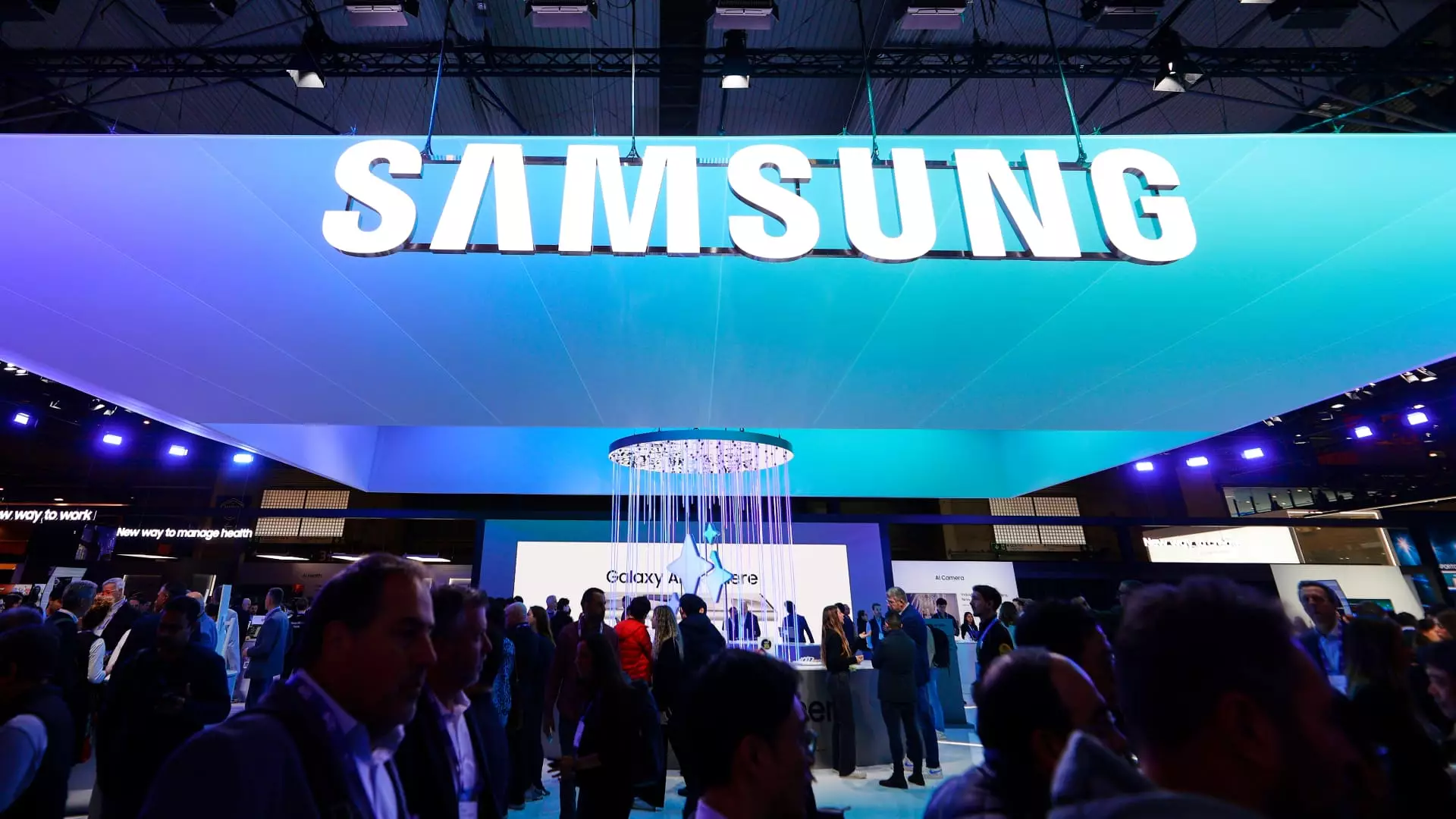In a disheartening announcement, South Korean technology powerhouse, Samsung Electronics, revealed its projections for the third quarter of the year, which point to profits falling short of analyst expectations. The company anticipates an operating profit of approximately 9.10 trillion won, representing a remarkable 274% increase compared to the previous year when it recorded 2.43 trillion won. However, this surge still fails to meet the forecasts set by analysts at LSEG, who had predicted an operating profit of 11.456 trillion won ($7.7 billion) for the same period. The discrepancy highlights the intensifying challenges Samsung faces in the global semiconductor market.
As the industry’s leading manufacturer of memory chips—essential components utilized in devices ranging from laptops to data servers—Samsung finds itself grappling with unforeseen difficulties. The company’s recently announced challenges are attributed to “one-time costs and negative effects,” stemming from inventory adjustments prompted by mobile clients and a surfeit of older products introduced by competing Chinese memory companies. This stark statement underscores a critical period for Samsung, as it maneuvers through a landscape characterized by heightened competition and shifting consumer demands.
Analyst Daniel Yoo from Yuanta Securities Korea has remarked on the disappointing nature of Samsung’s figures, pointing out the faltering demand for conventional memory chips, particularly those used in PCs and smartphones—a sector Samsung heavily relies on. Additionally, delays in shipments of advanced high-bandwidth memory (HBM3E) chips to key clients have exacerbated the situation. As the market continues to evolve, Samsung’s traditionally aggressive stance on gaining market share appears to have softened, raising concerns about the company’s strategy moving forward.
Reflecting the prevailing uncertainty, Samsung has reportedly instructed its subsidiaries across the globe to reduce their workforce by 30% in various divisions. This move, reported by Reuters, signals the company’s serious acknowledgment of its economic challenges. Furthermore, Samsung’s shares have experienced a notable decline, down 22% year-to-date, which exacerbates the pressure on the company as it navigates these turbulent waters. Share prices dipped further by 0.98% following the guidance release, emphasizing investor anxiety over Samsung’s future performance.
As Samsung prepares to release its detailed third-quarter financial results later this month, stakeholders will be keenly watching for insights into the company’s strategic responses to these challenges. The semiconductor market remains fluid, and Samsung’s ability to adapt to the current downturn will be critical. With larger industry trends shifting and competitors gaining ground, the company needs to realign its strategies swiftly, focusing on flexibility in memory supply and exploring new markets to stabilize its revenue streams. The road ahead will not be easy, and Samsung’s decisions in the coming months will be pivotal in determining its resilience in an increasingly competitive landscape.

